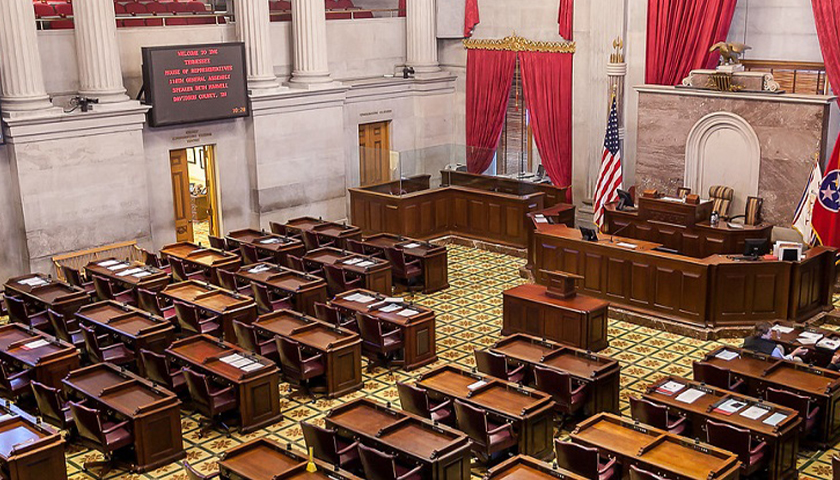The Williamson County-based Tennessee Stands this week published its top four priorities for the 2022 session of the Tennessee General Assembly.
Tennessee Stands, according to its website, calls on state and local officials “to restore our constitutional republic.”
According to an email to followers this week, Tennessee Stands’ top four priorities for this year’s legislative session include:
• Ending medical discrimination based on vaccination status here in Tennessee
• Implementing better voter roll maintenance at the county and state levels
• Securing paper ballots
• Giving voters the right to recall school board members
“As time passes, these bills will be assigned to committees and we’ll be asking you to call or email your legislators in support of these critical efforts,” Tennessee Stands’ officials said.
Group members said on their website that they support the following bills:
• SJR 296, which, according to the Tennessee General Assembly’s website, proposes adding a provision to Article XI of the Constitution of Tennessee to declare an individual right to refuse medical treatment. The bill, if enacted into law, would also require that the government not deny or abridge an individual’s other rights due to the individual exercising the right to refuse medical treatment.
• HB 1870 and SB 1880, which would prohibit a licensing board or disciplinary subcommittee from taking action against a physician’s license based solely on the physician’s recommendations to a patient regarding treatment for COVID-19. The proposed law would also prohibit a pharmacy from blocking or attempting to block a patient’s access to COVID-19 treatments in certain circumstances.
• HB 2121 and SB 2267, which would provide mechanisms to verify a voter’s eligibility to vote and grant general assembly standing in cases involving violation of election laws.
• HB 2074 and SB 2359, which would require county election commissions use only ballot-marking devices or hand-marked ballots and tabulate the ballots using an electronic tabulator or by a hand count. The proposed law also specifies the distance from which a poll watcher may observe the counting and processing of ballots. The proposed law also requires certain security features on paper ballots.
• HB 2112 and SB 1939, which would require that the Tennessee Comptroller establish an office of election integrity within the department of audit to perform and supervise election audits.
• HB 2067 and SB 2189, which would reduce the percentage of votes required in a gubernatorial or county mayor election that a minor party candidate must receive for the minor party to remain a recognized minor party.
• HB 1978 and SB 2275, which would prohibit a state agency from lobbying for or against state legislation and prohibit the use of appropriated funds or funds under the agency’s control for such purposes.
• HB 2388 and SB 2596, which would broaden from only Madison County to statewide the authority to recall a local board of education member.
• HB 2451 and SB 2360, which would require Local Education Agencies (LEAs) to permit parents to have access to certain information, including the names of instructors, titles available in the school library, teacher manuals, and curriculum. The proposed law would also require parents to provide written consent before a student can participate in any extracurricular activity, family life lesson, field trip, school assembly, or guest speaker event. The bill also prohibits certain healthcare practitioners from providing medical treatment to a minor without parental consent or an appropriate court order.
• HB 1717 and SB 1835, which would require that a commissioner of education — appointed by the governor — get confirmed by the Tennessee General Assembly by joint resolution before they could serve in that position. The proposed law also requires the commissioner to submit the commissioner’s strategic plan for the department to the state board of education for approval.
• HB 1944 and SB 1944, which would exclude LEAs, public schools, and employees and private contractors of LEAs or public schools from the exception to certain obscenity offenses if the LEA, public school, employee, or private contractor possesses obscene material that is harmful to minors on public school premises. The proposed law also prohibits an LEA or public school from making obscene materials or materials harmful to minors available to students in the school libraries controlled by the LEA or public school.
• HB 2452 and SB 2151, which would designate as an unlawful discriminatory practice certain actions taken by a person, public officer, public employee, governmental entity, employer, or place of public accommodation against an individual on the basis of the individual’s vaccination status, immunity status, or whether the person has an immunity passport.
– – –
Chris Butler is an investigative journalist at The Tennessee Star and The Georgia Star News. Follow Chris on Facebook, Twitter, Parler, and GETTR. Email tips to [email protected].
Photo “Tennessee Senate Chamber” by Terrance.CC BY 3.0.








